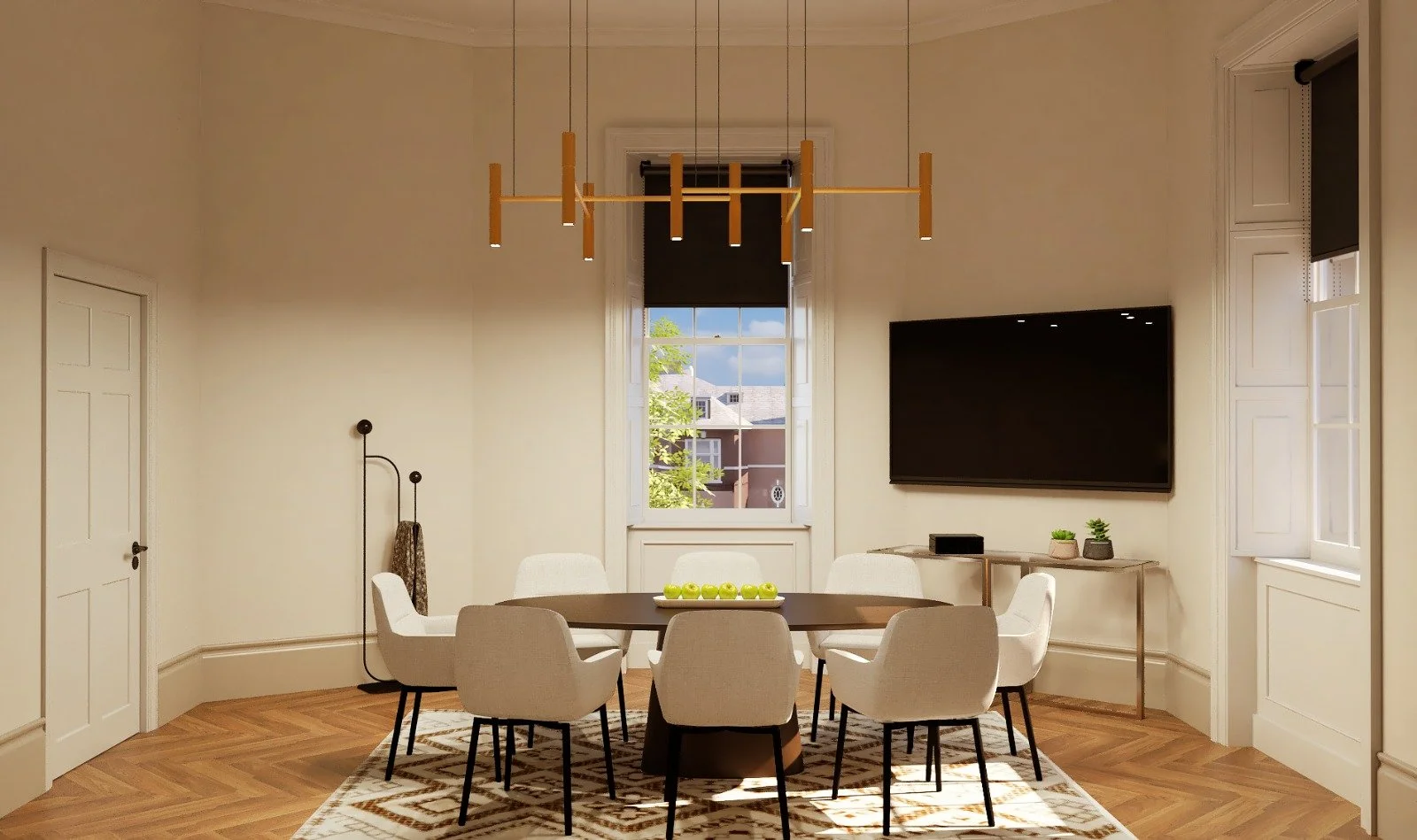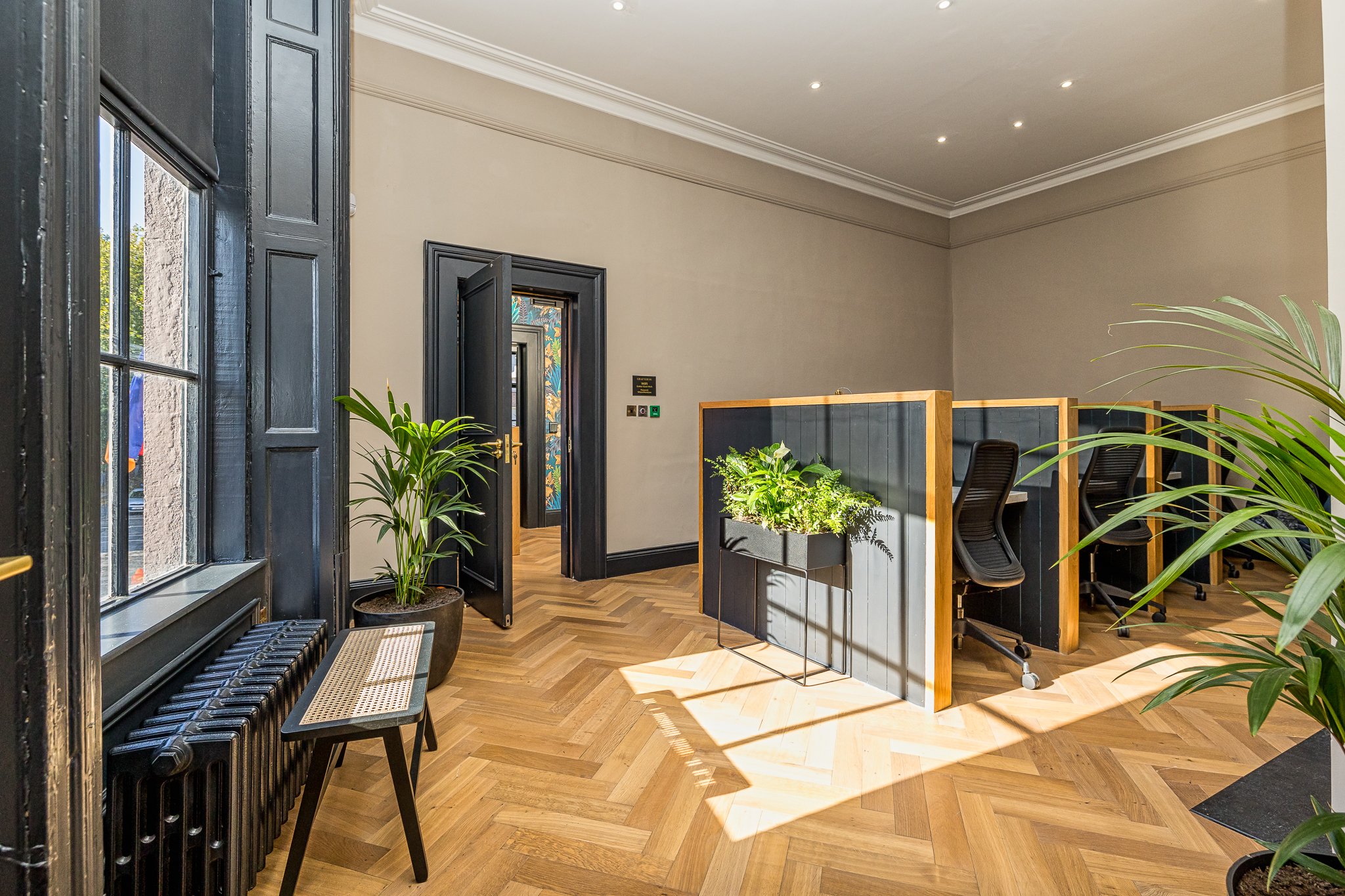5 Key Factors to Consider When Choosing a Flexible Workspace Provider
Choosing a new HQ for your business is no small job. Whether you’re in the office five days a week or dropping in for a few hours of focused work, you need a workspace that allows you and your team to have a productive, efficient and successful day.
A flexible, serviced office provider offers everything a growing business needs under one convenient roof, but which provider you choose to grow your business with matters. There are several factors to consider when choosing an office to ensure you have the right environment for you and your team in the years to come.
Here are five key factors to keep in mind during your office search:
1. Office Location and Accessibility
The location of your office is one of the most important factors to consider when choosing a flexible workspace. Some providers offer multiple locations across a city, or even a continent, but you’ll need to consider how you, your team and your clients work best when touring offices for your home base.
Think about your workday: how much time do you want to spend commuting? Is your team more likely to drive to work or take public transportation? If you have frequent client meetings, is your office easily accessible from all parts of the city? Are there major roads nearby? Train stations? Bus stops?
While the commute is a major factor in selecting a location, you’ll also want to consider what amenities are in your surroundings, and how these can accentuate your company culture. Nearby restaurants and pubs can provide opportunities for after-hours networking and socializing, while access to shops and services mean your team might be able to achieve more work-life balance on their on-site days by taking care of errands over the lunch hour.
Think of your business as a whole when considering your workspace location: every team member will spend a significant amount of time in the office, so it’s important to find a solution that meets a variety of needs.
2. Workspace Amenities and Facilities
Flexible workspace providers offer a range of on-site benefits and amenities, as varied as the number of businesses that choose to take space in serviced offices. Whether you need a bare-bones solution or all the bells and whistles to impress clients, the first step is figuring out what is important to you and your business.
Most serviced office operators will provide internet, utilities and office furnishings, but you might need additional amenities like meeting space, communal breakout areas or kitchens. Ask yourself questions like these: how does your team work best? In a casual setting, or in a more formal one? How many meetings do you have each week? Do you often invite clients to your office?
Not only is the scope of amenities a wide one, but the quality of these amenities will vary greatly depending on which flexible office provider you choose to do business with. For some, atmosphere is important, and you’ll find high-end fixtures and furnishings throughout. For others, having flexible, communal space is key. Get clear on what you need to ensure you and your team can work effectively.
3. Term Flexibility
One of the biggest benefits of taking flexible, serviced office space over a traditional lease is flexibility. During uncertain times, it’s difficult to predict what your business will need in two years, let alone ten. Choosing flexible workspace often comes with the benefit of shorter lease terms, allowing you to find the ideal home for your business, without the risk or high overheads.
Different providers offer various terms and contract lengths. Some providers offer month-to-month contracts, while others may require longer commitments.
Before you sign a license, think about your hiring plan, how often your team will be on-site and market conditions. As experts in the office industry, your provider will be able to work with you to create a term length that works best for you, by understanding what you need out of a workspace both in the immediate and near future. Choose a provider that aligns with your short or long-term goals.
4. Community and Networking Opportunities
Networking opportunities can be a huge benefit of flexible workspaces. If you are a small or growing business, serviced offices offer a strong community of likeminded individuals, entrepreneurs and professionals. Some workspaces have communal areas and breakout spaces like terraces, courtyards, kitchens and lounges – places you can connect and collaborate with others you might not have had the chance to meet otherwise. You never know the connections you can make over a cup of tea!
Many flexible workspaces facilitate networking events for members as well. As part of their membership network, you may have access to talks, panel discussions, workshops or even online platforms that will help you connect with other members.
Building a strong network can lead to new collaborations and fresh thinking. When choosing a flexible workspace provider, ask about networking opportunities, as well as the community culture within the office building, so you can ensure you’re making the most out of your flexible workspace membership.
5. Cost and Transparency
Of course, budget will likely be your foremost consideration when conducting your office search. For every budget, there’s a serviced workspace provider to meet it, but it’s important you gain clarity on what you’re paying for and the value you’ll receive.
Chat with flexible office providers about how they price their space. If you’re taking a private office suite, you might be paying per square foot or meter. In many instances, you’ll pay per desk. Ensure there are no hidden costs or charges for services you and your team won’t need. A trustworthy workspace operator will explain their cost structure clearly and will highlight any additional fees and services you might not be aware of.
They’ll also work with you to come up with an office solution that meets your budget. For example, you might need fewer desks than you think. If you offer your team hybrid or remote working, colleagues can share hot-desks on alternate days, saving you budget as well.
There are additional factors to consider, including 24/7 access, design and aesthetics, and the reputation of the provider’s customer care (always make sure you’re working with a team that has your business’s success at heart).
There are as many flexible workspace operators as there are businesses, and by carefully comparing your specific needs and preferences to what a provider can offer, you’ll be able to make an informed decision when selecting a flexible workspace provider – and provide the ideal HQ for you, your team and your clients.










